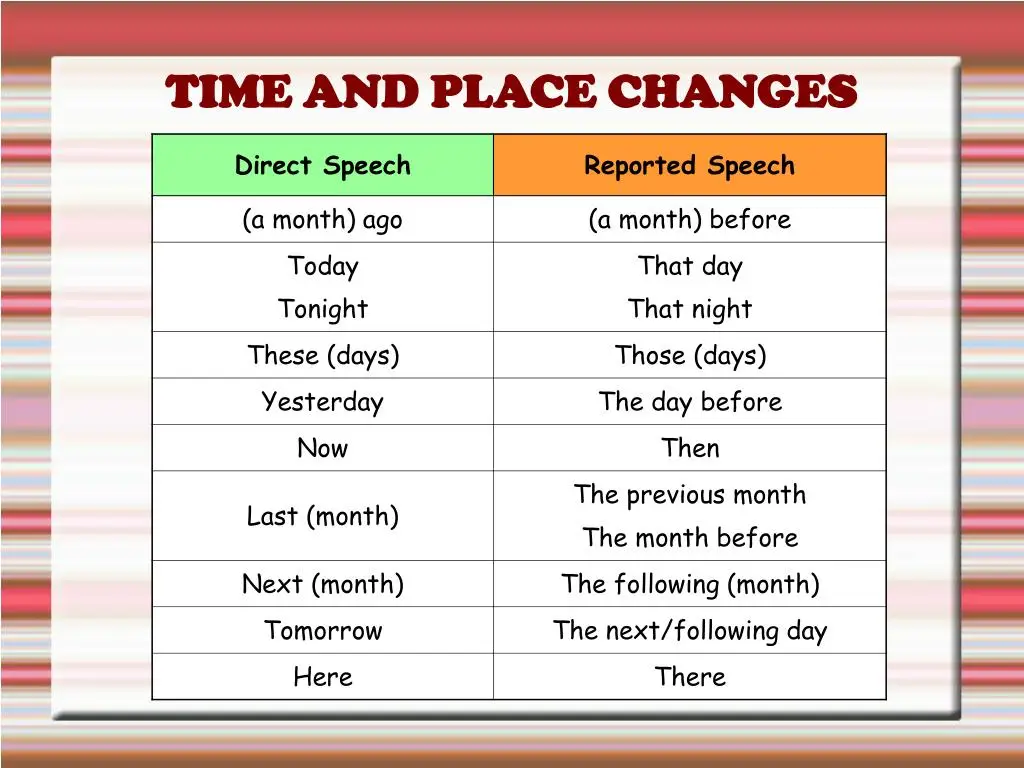Mastering English Fluency: Your Guide to Speaking Like a Native in Six Months
Welcome to your express ticket to mastering the English language! Tired of having your tongue tied in knots trying to pronounce ‘thorough’ or ‘colonel’? Say no more. This book is your guide, your coach, and your biggest cheerleader on your journey to sounding like a native English speaker. But beware, this isn’t a walk in the park; it’s a thrilling rollercoaster ride. Within six months, you’ll be astonishing your friends, family, and even yourself with your newfound fluency. So buckle up and let’s turn your English language dreams into an eloquent reality!
The Journey Begins: Say Goodbye to Your Old English Speaking Self
This is more than just a book – it’s a vessel carrying you on an exciting voyage towards English fluency. The purpose? To transform you into an English speaker so proficient that even native speakers will be taken aback. The goal? To do so in just six months.
Don’t worry, you’re not alone on this journey. I, Ken, will be your guide. I’ve been where you are now – tongue-tied, second-guessing, and even avoiding conversations in English. It was a struggle, but it was a struggle I won. Today, I effortlessly converse in English, my accent untraceable. I achieved this in half a year, and I’m here to show you how you can too.
Here’s the catch – it won’t be easy. There will be challenges. There will be moments of self-doubt. But believe me when I say, the reward is worth every bit of the effort. So, I ask that you commit to this journey. Embark on this exciting ride with enthusiasm and perseverance. With the right mindset and this book in your hands, you have all you need to succeed. Remember, the journey of a thousand miles starts with a single step. So let’s get started and turn your dreams of English fluency into reality!
Understanding the English Language
The English language, with its vast richness and complexity, is an intricate tapestry woven from diverse linguistic threads. Its grammar rules, vocabulary, and pronunciation patterns are not just arbitrary sets of conventions, but are deeply rooted in the historical, cultural, and social fabric of English-speaking societies. To truly master English, one needs to go beyond rote memorization and mechanical practice. It is about immersing oneself in the culture, understanding the context, and sensing the subtle nuances. It involves appreciating the rhythm and melody of the language, and molding your tongue to dance to its unique tune. In this journey, you will not only learn to speak English proficiently, but also gain a deeper understanding of the language and its inherent beauty.
Tackling Pronunciation Mastering pronunciation is a crucial aspect of sounding like a native English speaker. Here are some techniques and tips to assist you:

- Phonetic Transcription: Phonetic transcription is your roadmap to correct pronunciation. Each English word has a specific phonetic transcription that demonstrates how it should be pronounced. Utilize dictionaries that provide phonetic transcriptions, like the Oxford Learner’s Dictionary or Cambridge Dictionary.
- Mouth Positioning: Understand that different sounds require different positions and movements of the mouth, lips, and tongue. For instance, to pronounce the ‘th’ sound, your tongue should lightly touch your upper teeth.
- Listen and Repeat: Listening to native speakers and mimicking their pronunciation is a valuable exercise. Use resources like films, music, podcasts, and language learning apps.
- Record and Assess: Record yourself speaking English. Upon playback, you’ll notice areas that need improvement. Repeat this process until you’re satisfied with your pronunciation.
- Break Down Words: Difficult words can be broken into smaller, manageable parts. Pronounce each part separately before combining them.
- Use Tongue Twisters: Tongue twisters are a fun and effective way to improve pronunciation. They help to strengthen the muscles involved in speech and familiarize you with complex combinations of sounds.
Remember that mastering pronunciation takes patience and practice. Don’t rush the process, and most importantly, enjoy the journey of learning to speak English like a native.
Building Vocabulary, the Natural WayExpanding your vocabulary is a crucial part of mastering English. Here are some strategies to enrich your word bank and ensure you use them effectively:

- Read Regularly: Reading exposes you to a wide range of words used in varying contexts. Make sure to diversify your reading material. Novels, newspapers, academic articles, and even comic books can all contribute to vocabulary building.
- Use a Dictionary and Thesaurus: Carry a pocket dictionary or install a dictionary app on your phone. Whenever you encounter a new word, look it up immediately. A thesaurus can help broaden your vocabulary by providing synonyms for words you already know.
- Create a Vocabulary Notebook: Have a dedicated notebook for new words. Jot down any new word you learn along with its meaning and a sentence using it. Review this notebook regularly.
- Learn Word Roots, Prefixes, and Suffixes: Understanding the components of a word can often hint at its meaning. This is especially true for English, which borrows many of its roots from Latin and Greek.
- Practice Using New Words: Include new words in your daily conversations or writings. The more you use a word, the more solidly it gets etched in your memory.
- Word Games and Puzzles: Engage in crossword puzzles, word search games, or apps like Words With Friends. They make vocabulary building fun and interactive.
- Contextual Learning: Memorizing a list of words might seem like a good idea, but it’s ineffective. Instead, learn words in context. That way, you not only understand the meaning but also how to use it appropriately in a sentence.
Remember, building a rich vocabulary doesn’t happen overnight. It is a continuous process that requires consistency and practice. The journey might feel long, but with each new word you learn, you are one step closer to speaking English like a native.
Grammar Without the Grind
Perfecting English grammar without getting entangled in the web of complex rules can seem daunting, but it’s feasible. Approaching grammar intuitively, rather than mechanically, leads to a more profound understanding. Start by immersing yourself in the language. Listen to and read English content daily. As you expose yourself to the language in diverse contexts, you’ll start noticing patterns and structures. These are the building blocks of grammar.
For instance, observe sentences such as “I am reading a book” and “She is playing guitar.” You’ll recognize that the structure “subject + is + verb + -Ing” conveys an ongoing action. This is the Present Continuous tense. You’ve learned it not by memorizing a rule, but by intuitively understanding its usage.
Similarly, idiomatic expressions, which often bend the so-called ‘grammar rules’, can be understood best in context. The phrase “broke the bank” doesn’t involve any physical act of breaking, but intuitively understanding its metaphorical meaning in context can help you use such phrases accurately.
Remember, practice is key. As you engage with the language, try to reproduce what you’ve learned in your conversations and writings. With time, English grammar will become second nature to you, and you’ll be speaking and writing English fluently, without the grind of grammar rules.
Thinking In English

One of the most significant steps towards fluency in any language, including English, is to start ‘thinking’ in that language. Mental translation, or the habit of thinking in your native language and then translating into English, could slow down your spoken English and make your sentences sound unnatural. But how can one start thinking in English? Here are a few suggestions:
- Immerse Yourself in English: Surround yourself with English language as much as possible. Watch movies, listen to music, read books, and engage in conversations in English. The more you do this, the more natural it will become to think in English.
- Think in Single Words: Begin by thinking in English words during your daily routines. For instance, when you see a dog, think ‘dog’ not the word in your native language.
- Narrate Your Life in English: A helpful exercise is to silently narrate your life in English. As you go about your day, describe what you’re doing in English. For example, when you’re making breakfast, think “I am making coffee. I am toasting bread.”
- Use an English to English Dictionary: When learning new words, use an English to English dictionary. This way, you associate the new word with an English definition, not a translated definition.
- Practice Mindful Speaking: When speaking in English, slow down and take a moment to think about what you want to say in English before you say it. This will help train your brain to think in English first.
- Keep a Journal in English: Writing in English can also help you think in English. Try to write something every day, even if it’s just a few sentences.
Remember, the goal is to make thinking in English a habit. With practice and patience, your brain will gradually shift from translating to thinking directly in English, making your spoken English sound more fluent and natural.
Mastering English Pronunciation

Reducing your native accent and acquiring a British or American pronunciation involves a series of techniques that require practice and patience. Here are some tips that might help:
- Immerse Yourself in the Accent: Listening is key to pronunciation. Surround yourself with the accent you wish to learn. This could be through movies, songs, podcasts, or radio stations. Youtube and language learning apps offer numerous resources to practice listening.
- Learn the Phonetics: English phonetics can be tricky, but understanding them is crucial for accurate pronunciation. Use a phonetic chart to learn the sounds of English. Many online learning platforms provide interactive phonetic charts.
- Mirror Native Speakers: Choose a native English speaker, preferably a public figure or a character from a movie or series, and try to mirror their accent. Pay attention not just to the sounds but also to the rhythm and intonation.
- Use Pronunciation Guides: Many dictionaries provide pronunciation guides, both in written and audio form. Use them to check the correct pronunciation of words.
- Record and Listen to Your Speech: Use your phone to record your speech and listen back. This can help you identify areas you need to work on.
- Practice Tongue Twisters: Tongue twisters are a fun way to practice specific sounds and improve your articulation, speed, and fluency.
- Take Pronunciation Classes: If possible, attend pronunciation classes. These can provide professional guidance and immediate feedback.
Remember, everyone has an accent, and it’s a part of your identity. The goal is not to completely lose your accent but to be clearly understood when you speak English. Don’t be too hard on yourself; learning a new accent takes time. With consistent practice, you can significantly improve your English pronunciation.
Practical Exercises – Offering a set of exercises to practice and consolidate your learnings.
- Listening Comprehension: Choose a podcast or video in English on a topic of your interest. Listen to it a few times. After each round, jot down the main points and any new vocabulary that you learned.
- Idiomatic Expressions: Find a list of commonly used English idioms. Choose five idioms and try to use them in sentences of your own.
- Thinking in English: Choose a routine task you do daily, like cooking or cleaning. As you perform this task, narrate what you’re doing in English.
- Journaling: Write a short journal entry in English. It could be about your day, a book you’re reading, or an idea you’ve been pondering.
- Pronunciation: Choose a tongue twister and practice saying it quickly and clearly. Record yourself and listen to your pronunciation.
- Conversation: Find a language exchange partner or join an English speaking club. Practice having conversations in English on diverse topics.
Remember, the key to mastering English lies in consistent practice. Try to incorporate these exercises into your daily routine to further enhance your language skills.
Sustaining Your Progress – Tips to keep improving your English skills even after the six-month timeframe, including resources and habits for continuous learning.

Sustaining Your ProgressContinuing your progress in English requires a commitment to constant learning and practice. Here are a few tips to support your ongoing journey:
- Regular Reading: Read English books, articles, newspapers, or blogs regularly. Reading not only enhances your vocabulary but also familiarizes you with sentence structure and grammar usage in English.
- Watch English Content: Watching movies, series, documentaries, or listening to podcasts in English can improve your listening skills and pronunciation. Try to watch without subtitles to train your ear.
- Use English in Daily Life: Try to incorporate English into your daily life. Label household items in English, make lists in English, or try to think in English.
- Join Online Communities: There are numerous online forums and social media groups where English learners can interact, share resources, and practice the language.
- Practice Speaking: Regular speaking practice is vital to fluency. Use language exchange websites to find partners for conversational practice.
- Language Learning Apps: Apps like Duolingo, Babbel, or Rosetta Stone offer interactive English lessons and can be a great resource for continuous learning.
- Continued Education: Consider enrolling in advanced English classes or courses that focus on specific skills such as business English or academic writing.
- Self-Assessment: Regularly test your English skills. There are numerous online resources offering free English tests that can help you assess your progress and identify areas to improve.
Remember, the journey to language mastery is a marathon, not a sprint. Celebrate your progress, be patient with yourself, and stay curious. Your English skills will continue to grow with time and practice.
Keep Moving Forward
As we reach the end of this guide, it’s important to remember that the journey to language proficiency is deeply personal and unique to each individual. The road to mastering English—or any language for that matter—is filled with challenges and triumphs that ultimately enrich your understanding of the language and broaden your cultural horizons.
Don’t let the fear of making mistakes keep you from expressing yourself. Each mistake is a stepping stone towards fluency. Remember, every expert was once a beginner, and every proficient speaker started by knowing nothing. Be patient with yourself, practice regularly, and don’t forget to enjoy the process. Learning a language is not just about the destination, but also about the journey and the experiences along the way.
Stay committed to your language learning goals, continue to immerse yourself in the language, and seize every opportunity to practice. Remember, the only way to improve is by using what you’ve learned. Make English a part of your everyday life and keep pushing your boundaries.
The world is full of people who have successfully learned English as a second language and now use it effortlessly in their daily lives. That can be you! Believe in yourself, stay motivated, and keep at it. You are well on your way to achieving English fluency, and the benefits of your hard work will be greater than you can imagine. Good luck on your continuing journey, and remember—the sky’s the limit!

